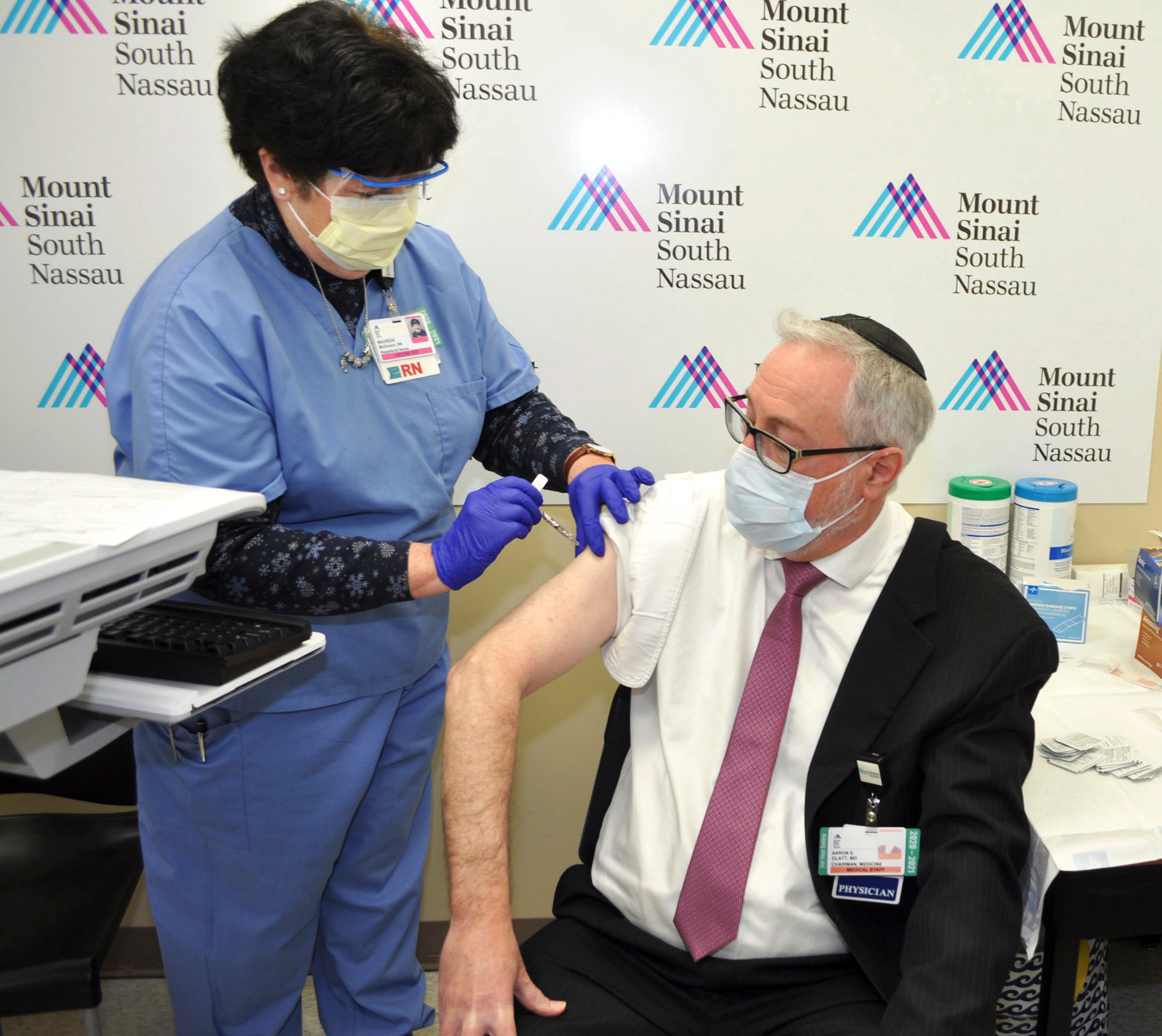Changes at shul in time of vaxing, ‘loosening’
Rabbi Dr. Aaron Glatt is Chief of Infectious Diseases and Hospital Epidemiologist at Mount Sinai South Nassau and assistant rabbi of the Young Israel of Woodmere. He distributed this message before Shabbos.
Many Rabbonim and lay shul leaders have been asking me if shul policies should be “loosened” and allow for less distancing and / or masking now that BH more and more people are vaccinated.
Several medical points need to be emphasized:
1) BH serious complications, including hospital admissions and death have been dramatically reduced in fully vaccinated people.
2) Risk of transmission in such fully vaccinated individuals if they get infected is very low but not zero.
3) The CDC states we are seeing more hospitalizations than previously in younger patients (30s and 40s) due to some of the variant strains.
4) No one can accurately predict how effective the current vaccines will be against some of the newer novel variant strains and what future strains may occur.
5 Long term sequelae of COVID-19 still are not fully understood, and many people, including younger individuals with COVID-19 illness (even mild illness) still have significant symptoms present months after infection. COVID-19 is certainly not a “benign” illness in all young patients.
6) While my personal analysis is that the presence of antibodies at least in the initial 8 months after infection (and possibly beyond that) indicates a significant level of immunity against acquiring a second COVID-19 infection, the value of such antibodies and what they mean longer after infection remains an uncertain area of medicine. To this date, the CDC still does not recommend usage of antibodies in decision making.
7) The CDC as a public health protector will naturally be more cautious than any individual physician, even as an “expert” may be comfortable in making policy changes / loosening some of the guidance.
8) Even where evidence exists to “loosen” prior restrictive guidelines in the setting of full vaccination, there are significant logistical issues in verifying vaccine / prior COVID-19 status, assuring that individuals with ANY symptoms refrain from attending shul and shiurim, and policing guests and visitors attending such “vaccinated” minyanim and semachot.
9) While fully vaccinated people can resume domestic travel and do not need to get tested before or after travel or self-quarantine after travel, the CDC as of April 2, 2021 still currently recommends that even fully vaccinated individuals should continue to:
•Take precautions in public like wearing a well-fitted mask and physical distancing;
•Wear masks, maintain physical distance, and practice other prevention measures when visiting with unvaccinated people from multiple households;
•Avoid medium- and large-sized in-person gatherings.
Therefore, after my discussions with both HaRav Schachter shlita and HaRav Willig shlita, separately, who each stated that we should not be more meikal than the CDC (we can be more machmir), I am not able to recommend dramatic changes at this time in the recommendations that we have provided to shuls. They both reiterated this takes into account considerations regarding both our neshamos as well as our guf.
However, individual smaller changes in the way services are conducted (davening singing and length, aliyos, hagba / gellila, pesicha, using or not using partitions, can a fully vaccinated Rav use a partition and be distanced and give a shiur without a mask, whether indoor or outdoor rules should be slightly different, etc.), can be decided upon individually by local shul rabbonim based upon their comfort levels, vaccination status of their attendees, and local medical expert advice.
I am in favor of “loosening” some of the prior restrictions where they do not directly conflict with the CDC positions and where data suggests it is reasonably safe to do so.
May HKBH continue to provide us with the refuah to this terrible machalah.
Kol tuv, Aaron Glatt






